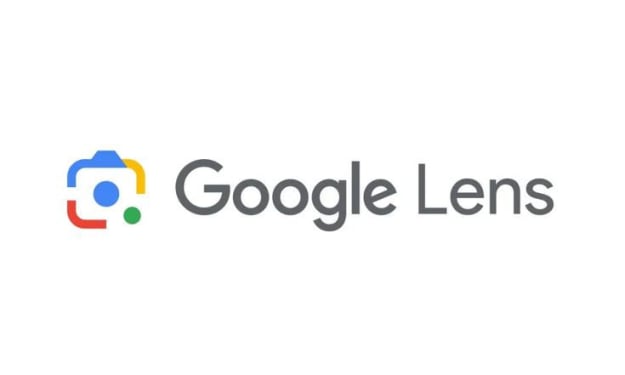Angular or React: What's the Best Choice for You?
Angular or React js For Web Development

Choosing the right technology stack to power your next web project can be one of the most difficult, and important, decisions you'll make when building a new app. In this post, we'll cover two of the most popular options: Angular and React. We'll also talk about some of the other popular options out there so you can make an informed decision before starting development, like Vue and Ember. We've recently taken on several React and Angular projects with our clients, so we thought it would be helpful to share what we've learned along the way. Let's get started!
Read More : Angular Vs React Js: What To Choose For Your Development?
Quick Intro
Angular and React are two of the most widely used open-source libraries in front-end development. Angular is a full-featured JavaScript framework, whereas, React is a part of Facebook’s ever-expanding collection of front-end development tools (known as React Native). Both have become popular choices among web developers who are building complex single-page applications. There are many things that need to be considered before deciding on one over another – like technology maturity, ecosystem and community size. This post will explore both frameworks with detailed features comparison and conclude with what we think are their strengths and weaknesses relative to each other.
Pros and Cons
JavaScript Frameworks are rapidly changing and constantly being updated. This forces us to frequently evaluate what’s new, how it fits into our existing applications, and if we can incorporate it in a way that will continue to make development less time-consuming. With that in mind, let’s take a look at two popular frameworks, Angular and React, to see which one is best suited for your next project. To do so, we'll focus on ease of use vs. performance when building large-scale applications with both frameworks.
Overall Complexity
One of Angular’s biggest draws is that it uses TypeScript, a typed superset of JavaScript that, in turn, compiles to plain JavaScript. Some developers prefer TypeScript because they find having type annotations can help catch errors early. Others say they like it because it feels more familiar than something like ES6. At any rate, you don’t have to know TypeScript to use Angular but we should note it is one of Angular’s major selling points.
Community Size
Most developers would agree that one of Angular’s main draws is its massive library of Angular-based tools and extensions. For example, you can use Angular to build a website, but with a few lines of code you can also build a mobile app. Angular has far more community support than any other JS framework—and that comes in handy when you’re stuck and need help. With so many resources at your fingertips, getting started with new projects becomes easier and faster.
Documentation Quality
How do you know that you're getting a solid framework to build with? One of the best ways is checking out what documentation comes with it. A robust API with good, thorough documentation is going to save you time and make your life easier—two things every developer wants. If a framework has great documentation, it probably means that there are plenty of people who have used it before and have found success in their projects. They can also point you to third-party resources for further help. Angular and React both have excellent documentation, though each platform does well in different areas.
Ease of Use
One of Angular's primary benefits is that it is, in fact, very easy to use. Unlike other frameworks and languages (looking at you, PHP), Angular has an all-inclusive package and module system; so new coders with little to no web development experience can start using Angular almost immediately. There are some downsides to ease of use, however: first and foremost, Angular has a steep learning curve. This can be difficult for small teams and those without dedicated developer resources—but it also means less pressure on everyone else to be experts. If your team needs someone with an expert level of expertise they should look elsewhere!
Learning Curve
5+ years of software development experience; but we'll take experience in any career field—business, journalism, education, etc. If you have a background in writing and know how to use SEO strategies to get web content ranked well on search engines like Google and Bing, that’s a huge plus. Experience with HTML/CSS, Javascript/JQuery and SQL are also must-haves.
Projects Experience Needed
Angular is a front-end JavaScript framework developed by Google and used to create dynamic web apps. If you want to build a simple page, it might be tempting to choose something like jQuery. But there are a lot of good reasons to choose Angular instead, particularly if you're building an app with a team. For example, when you use Angular, your code is more modular and reusable than if you use jQuery. That means it's easier to develop your app in small increments, which helps keep costs down and improves productivity.
Versatility (is it a web app, mobile app, desktop app, etc.)
In order to give you some quick insight into how each framework stacks up against one another, let’s look at their versatility. Specifically, let’s assume that you have a website and a mobile app (for Android and iOS). When you build both apps with either of these frameworks, here is what it would take to accomplish your goal: Angular can be used to create web apps and hybrid mobile apps (hybrid because they work on Android and iOS but they aren’t actually native mobile apps). This may sound similar to React but it isn’t.
Performance & Scalability
From a performance and scalability perspective, these two are fairly similar. Both are capable of creating very complex web apps that can load and render data quickly. Each was designed with performance in mind. The major difference between Angular and React is that Angular has an Injector component that looks at every component as a potential dependency -- meaning it will create additional code to make sure those components get passed in correctly. This adds overhead and makes your app slightly slower than it would be otherwise, but only slightly so if you structure your app correctly (which you should). On top of all that, using some libraries over others can also greatly affect performance -- so think carefully about which libraries you use as they can sometimes throw your app off its balance.
About the Creator
App Dev Guider
kartik Goyani is a Digital Marketing Strategist at Tagline Infotech, a mobile app development company. He has 3 years of experience in the Information Technology industry.






Comments
There are no comments for this story
Be the first to respond and start the conversation.